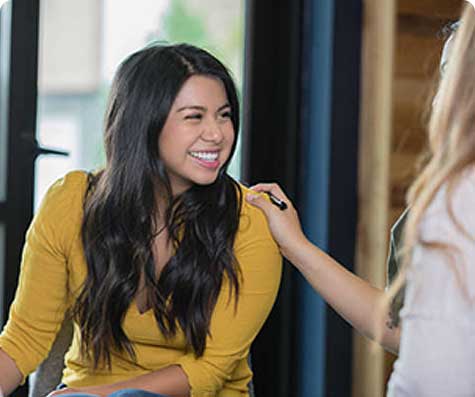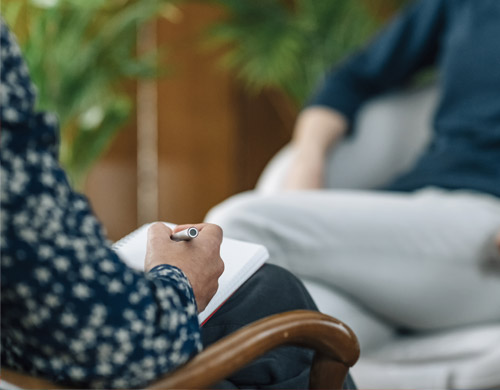Alcohol and drug addictions introduce hurdles when you or a loved one experiences them. By using professional treatment services it is possible to treat drug addiction or alcohol addiction just like other diseases and achieve long term sobriety.
On this page, will address how integrating different rehabilitation approaches can encourage a sober future for you or a loved one.
What is Addiction Rehab (Rehabilitation)?
The term addiction ‘rehabilitation’ is applied to all of the medical and therapeutic treatments used to help people who have dependencies on prescription drugs or illegal drugs. Rehab has the best chance of long term recovery success when it is customized to the unique needs of the client and includes medically-assisted detoxification, residential or outpatient programs, and relapse management techniques in the form of aftercare.

Facts & Statistics about Addiction in Contra Costa
Prevalence of Substance Use Disorder, by Drug Type
(IN THOUSANDS)
- 2,7578.5%Any Substance
- 2,0886.4%Alcohol
- 1,0683.3%Ilicit Drugs
- 2060.6%Pain Medication
Drug- and Alcohol-Induced Deaths by Age Group, California, 2016
- Alcohol-Induced
- Drug-Induced
- 18 to 250.5
- 9.6
- 26 to 354.3
- 13.9
- 36 to 6424.2
- 22.9
- 65+23.7
- 9.4
Drug Use, by Selected Type and Age Group California, 2015 to 2016
- 12 to 17
- 18 to 25
- 26+
- Marijuana*13.2%
- 34.0%
- 13.5%
- Misuse of Pain Medications3.5%
- 8.0%
- 4.3%
- Cocaine0.8%
- 7.2%
- 1.8%
- Heroin0%
- 0.4%
- 0.2%
What are the treatment options available in Contra Costa?
Integrated rehab is typically the best manner in which to deal with the root issues of drug and alcohol use disorders. Even though addiction symptoms need to be addressed, life skills will also be encouraged in order to focus on the causes of your substance misuse.

Private Residential Programs
Stay at the facility where you are receiving therapy, you are taking part in a residential program. One of the biggest benefits is access to continuous treatment and guidance. By moving out of your comfort zone and into a rehab facility, you can protect yourself from the those stressful triggers that contributed to you developing a substance dependency.
You can finish your treatment program and avoid relapse more easily if you stay in a controlled environment that is protective and supportive. Patients who are struggling with dual diagnosis, co-occurring illnesses or intense dependencies are strongly advised to take part in an inpatient addiction treatment program. Taking part in a residential treatment program is the most effective way to a sober life, and maintaining it demands continued focus because addiction recovery is challenging during the first year. Upon completion of your residential addiction treatment program, you will transition towards more independence as you set goals for your new substance-free life.
Do You Need Help?
Our addiction advisers are here to help you.

Sober Living Programs
Sober living programs are designed with the necessary support to help recovering individuals get what they need from new life in recovery. They support you through:
- Check-ins throughout the day from a house manager
- Developing frameworks for consistent recovery behavior
- Nurturing supportive relationships with others who may be going through the same kinds of experiences
Outpatient Programs
The flexible approach to outpatient treatment programs means that you do not have to stop work or participating in family commitments, as you can attend the rehab facility and undergo regular treatments at your own pace.
Outpatient programs help with:
- Education about substance dependence
- Therapy and counseling including group therapy or one-on-one interventions – The duration of an outpatient treatment is customized to your needs and lasts between three months to more than a year.
Detox Only Programs
The need for drug and alcohol detox from your body is the first step of rehab, as it rids the body of the substance, putting an end to your physical dependence. Symptoms of withdrawal is the body’s response to detoxification, as it begins getting used to working without drugs or alcohol.
The withdrawal process marks the start of the rehab recovery journey, and should always be followed up by dealing with the primary causes of your addictive behavior, so you do not repeat the same pattern of behaviors. A lot of drugs result in ongoing cravings and withdrawal symptoms after you have been through drug or alcohol detox. Relapse is less risky if you are equipped with the vital skills that will help you navigate your path in recovery.
Paying for Private Treatment
Private rehab have to be settled directly or claimed through your healthcare policy. The majority of health insurance providers will cover some of the costs of rehab, which includes detox, the rehab program, medicines you may need and aftercare programs. Your provider along with policy terms and conditions will dictate the amount of cover you can claim for.
Always determine the amount you can claim on your policy before you enroll in a program. To find out what you could be entitled to, click on our Verify Your Insurance page here – https://www.unitedrecoveryca.com/verify-your-insurance/.
If you prefer not to claim against your insurance, you must pay for your rehab with your own funds. Some rehab centers may provide payment plans for individuals who may find the costs unaffordable upfront.
State Funded Programs
If you are trying to overcome a problem with drug or alcohol dependency and limited financial means to enter private rehab, you could be eligible for a state-funded addiction rehabilitation program. With the use of funds from a combination of state, federal and Medicaid budgets, these types of treatment programs help to remove financial barriers to rehab by offering:

- Medical detox
- Addiction Rehabilitation and relapse prevention services.
Those lacking private healthcare insurance or live in households where the combined income is low may apply for a state-funded rehab program. To begin the process, you will need to provide:
- Proof of living arrangements
- Proof of your financial situation
- Medical history and details regarding your addiction
- Proof that you have the legal right to live in the US
Click https://www.grants.gov/ to find out more about applying. You can also download this file – https://www.samhsa.gov/sites/default/files/single-state-agencies-directory-08232019.pdf – for your state agency’s direct contact details.
The following state-funded addiction rehab programs are available in Contra Costa:
Diablo Valley Ranch
11540 Marsh Creek Road, Clayton, CA 94517
925-672-5700 x2702
https://bibett.org/Diablo Valley Drug and Alcohol Services
111 Deerwood Road,Suite 235 , San Ramon, CA 94583
925-289-1430
https://www.diablovalleytreatment.com/Diablo Valley Drug and Alcohol Services
100 Park Place,Suite 120 , San Ramon, CA 94583
925-289-1430
https://www.diablovalleytreatment.com/
Maintaining Addiction Recovery in Contra Costa
Maintaining addiction recovery can feel a challenge once you leave the rehab center. At rehab you were in a professionally supported, safe environment. When you leave, you may encounter new challenges or triggers that test your coping skills in ways you may not have anticipated. Long term sobriety is more difficult to maintain when you have had a severe dependency and do not have social support when you leave rehab. Without the relevant support and aftercare to guide you in your new life, relapse is a real possibility.
The following AA/NA meetings are available in Contra Costa:
Serenity Sunday Ask It Basket
Open, Speaker/Discussion, Wheelchair and Smoke Break:
Antioch Library, 501, West 18th Street, Antioch, CA, 94509
Sunday: 9:30AM
https://nameetinglist.org/Basic Text Story Time
Open, Basic Text, Speaker/Discussion, Wheelchair and Book Study:
Antioch Alano Club, Next to the, Alano Club, 710 West 1st Street, Antioch, CA, 94509-1109
Monday: 11:20AM
https://nameetinglist.org/Just For Today
Open, Rotating Format, Speaker/Discussion and Wheelchair:
Antioch Alano Club, Alano Club Meeting Room, 710 West 1st Street, Antioch, CA, 94509-1109
Thursday: 11:20AM
https://nameetinglist.org/
Aftercare & Alumni Programs
Aftercare programs provide extended support to you when you leave the rehab center. Because life doesn’t always happen the way we want it to, and 60% of individuals may relapse upon completing rehab, staying active in an aftercare program is an important support for you when life gets tough. As you near the finish line of your rehab program, you will be asked about the therapies and services that will facilitate long-term recovery, and we will create aftercare packages to guide you.

After finishing your rehab treatment program you will be eligible to join an alumni community program so you can stay close to staff and ex-clients. With the support from this network you will be attending fun events and receive encouragement and advice from other former clients who are in recovery as well. This gives you an ideal opportunity to reciprocate and help other former clients.
Support Groups (Fellowship Meetings)
Support groups are a great resource because they incorporate social structures into addiction recovery. When you join a group that follows the 12-step model, like Alcoholics Anonymous and Narcotics Anonymous, you can receive ongoing support via local meetings.
By attending nearby support group meetings you will hear, and learn from, the recovery stories of other members. Companionship, empowerment and taking responsibility for our actions are key to long-term recovery, and meetings provide many with the necessary tools to stay sober.
Support for Families & Children Affected by Addiction
Some individuals in an addicted household are damaged more than others. Support and guidance is just as vital for all family members as it is for the individual with the addiction issues. Taking part in family support groups can help you to cope better, and also empower you to provide greater support to those struggling with addiction.
Get help and support for the Family with the below support groups:
- Parents of Addicted Loved Ones
- SMART Recovery Family & Friends
- NAMI Family Support Groups
- Al-Anon
- Families Anonymous
- Alateen
- Nar-Anon










